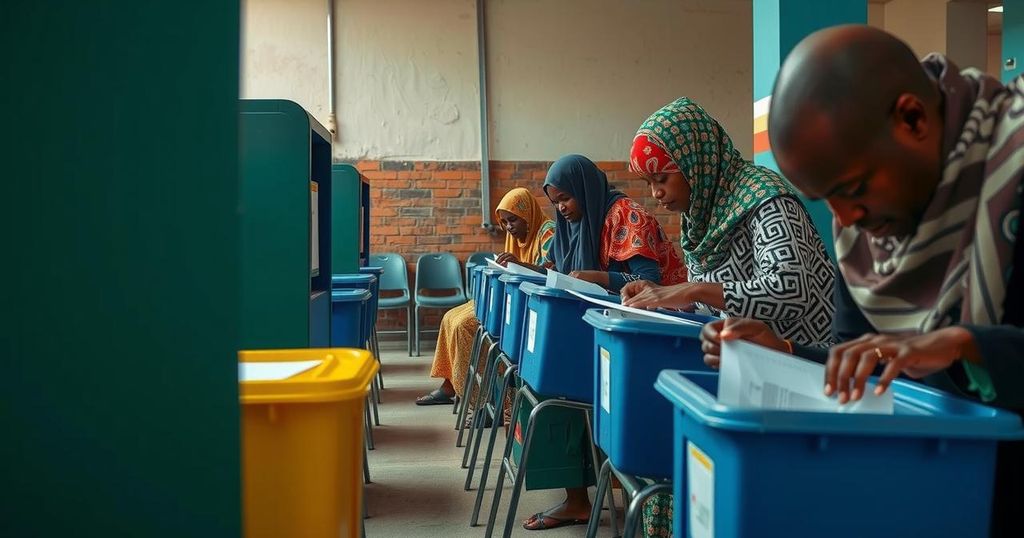Voting is currently underway in Somaliland’s pivotal presidential election, delayed for two years due to political tensions. Approximately 1 million voters are participating as candidates focus on economic improvement and social stability. Incumbent President Muse Bihi Abdi aims for a second term amidst ongoing regional challenges with Somalia and Ethiopia.
Voting has commenced in Somaliland for a significant presidential election, a process that was postponed for two years amid increasing political tensions in the Horn of Africa. Citizens are expressing their desire for improved economic conditions and job opportunities as they line up at over 2,000 polling stations. Approximately 1 million registered voters are expected to participate, with the observation of around 28 international monitors to ensure a transparent process. Among the candidates is the incumbent President Muse Bihi Abdi of the ruling Kulmiye Party, who seeks a second term. He emphasizes his administration’s efforts towards attaining international recognition for Somaliland, which has operated independently since its declaration of independence in 1991. In contrast, Abdirahman Mohamed Abdullahi, representing the opposition Waddani Party, campaigns on pledges of democratic reforms and social unity, while Faisal Ali Warabe from the Justice and Welfare Party advocates for a unity government. Somaliland has significantly diverged from Somalia, establishing a stable political climate, but faces challenges such as economic difficulties which led to the election delay in 2022. Recently, tensions have escalated with Somalia regarding Somaliland’s agreement with Ethiopia, providing access to the Indian Ocean in exchange for recognition, raising concerns over territorial integrity. This election marks Somaliland’s fourth presidential election and reflects ongoing concerns over electoral stability in the region.
Somaliland, a self-declared independent state emanating from Somalia’s civil unrest of 1991, has managed to create its governance frameworks devoid of international formal recognition. Despite this lack of recognition, Somaliland has maintained a relatively stable political environment in contrast to Somalia’s ongoing issues with security and governance. The election process faces scrutiny as it has been delayed previously citing economic challenges, reinforcing the delicate balance of stability and political legitimacy. The region’s geopolitical relations, particularly with Somalia and Ethiopia, further complicate its path towards recognized statehood and development.
The ongoing presidential election in Somaliland is a pivotal moment for the region, as it seeks to affirm its political stability and democratic processes while grappling with economic and geopolitical challenges. With significant voter turnout anticipated and international observation in place, this election will be a critical test of Somaliland’s electoral integrity and aspirations for greater recognition in the international community. The candidates’ diverse platforms highlight the pressing issues of governance and social cohesion in the region, underscoring the importance of this electoral event.
Original Source: apnews.com






